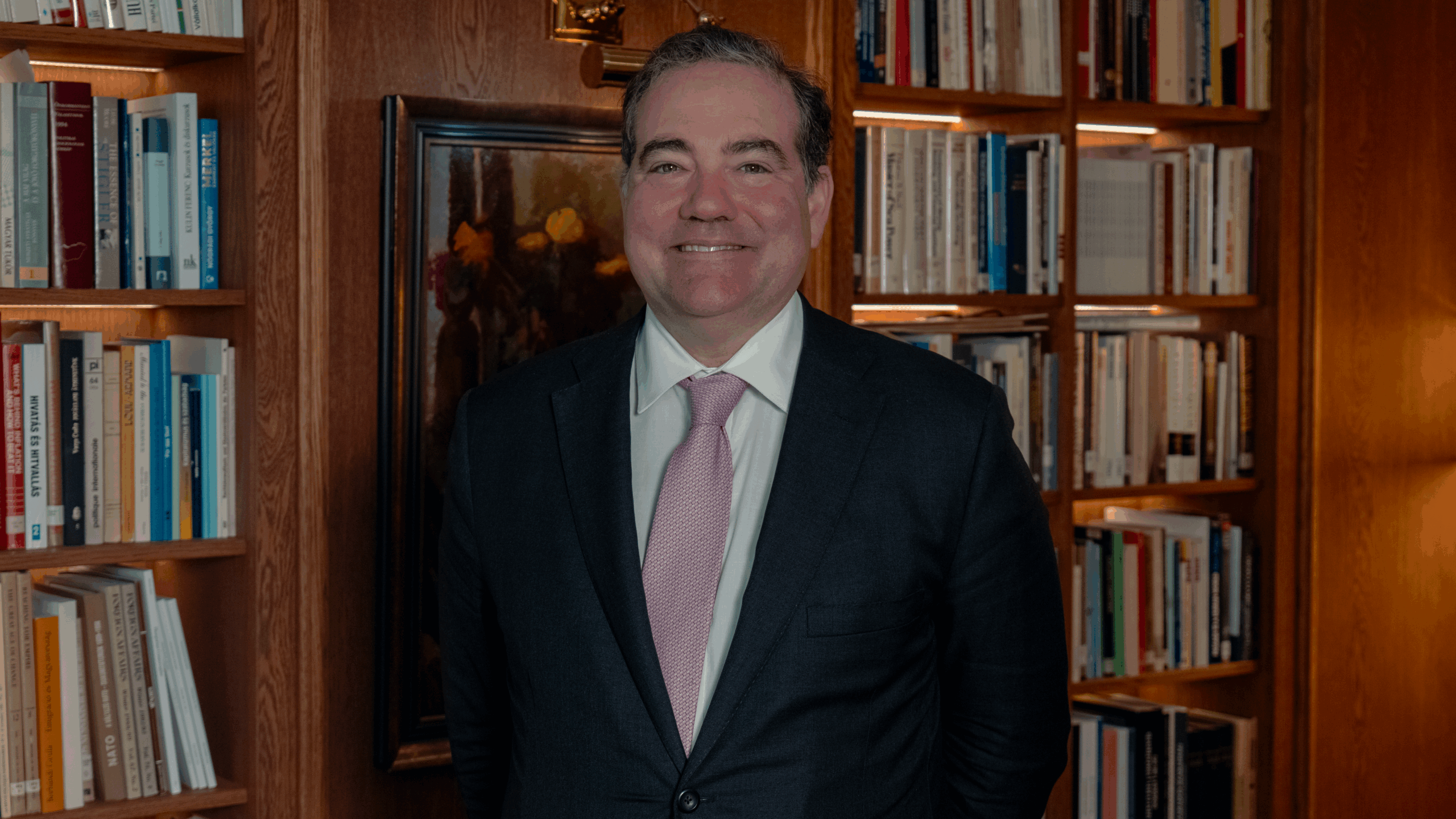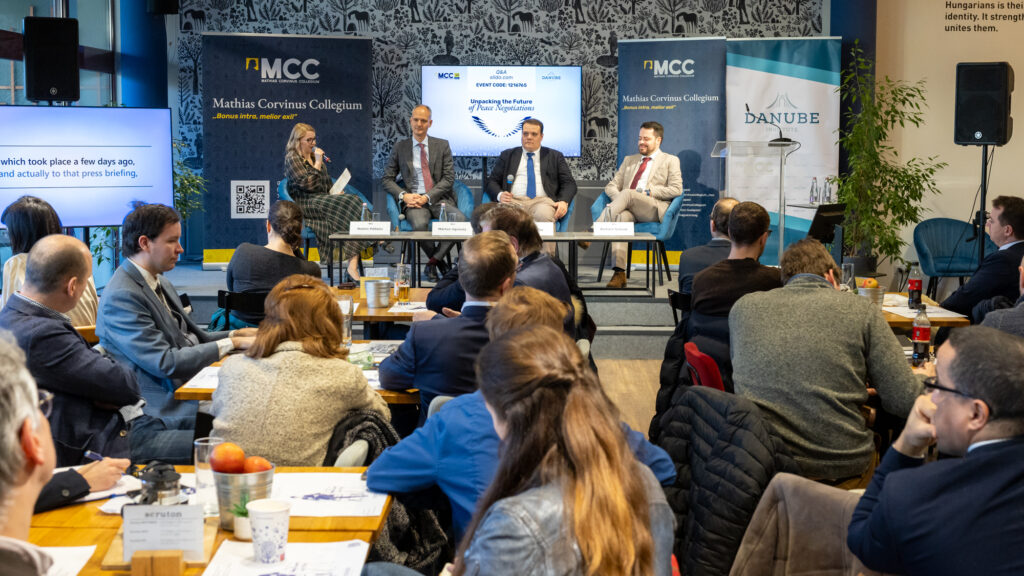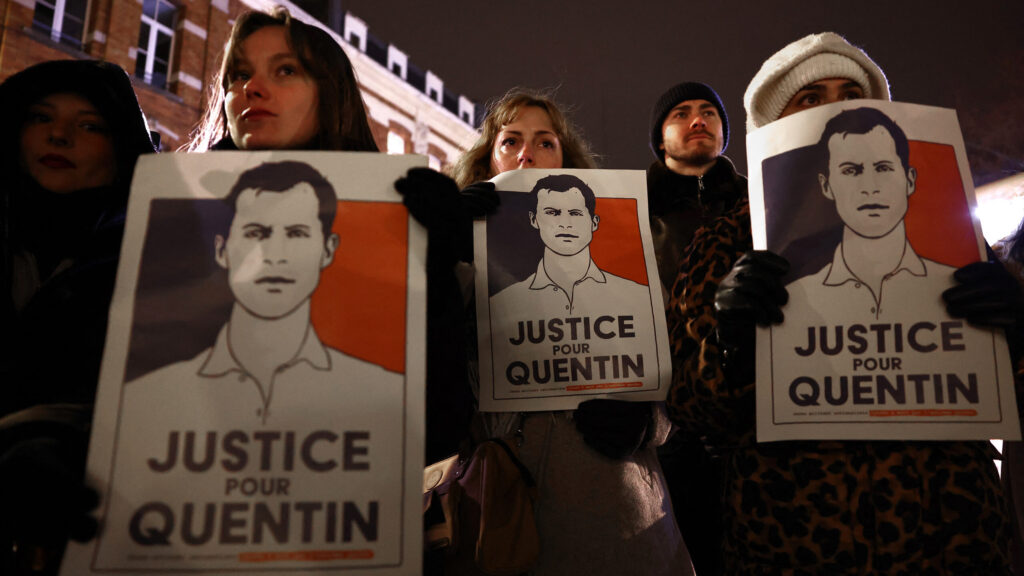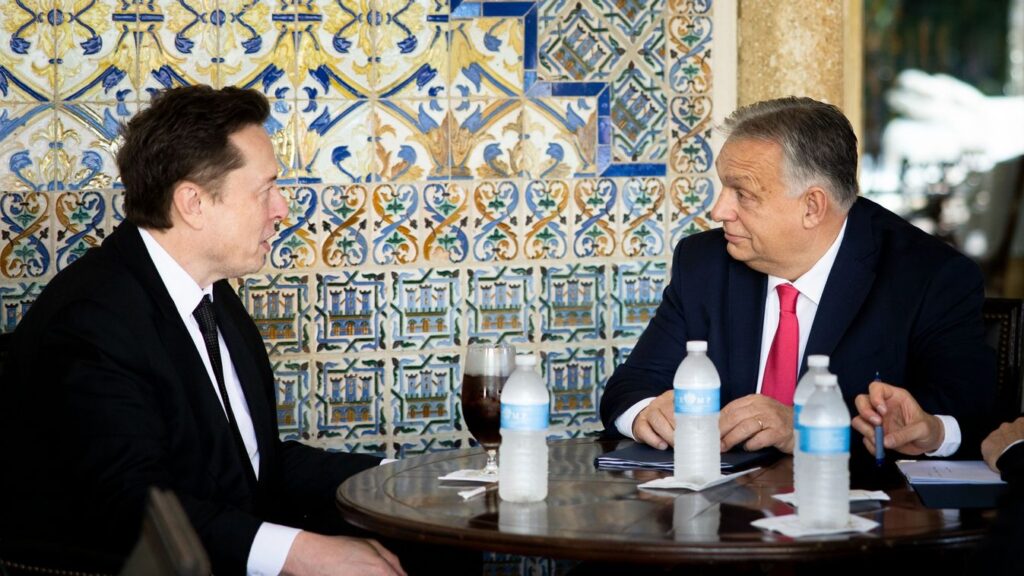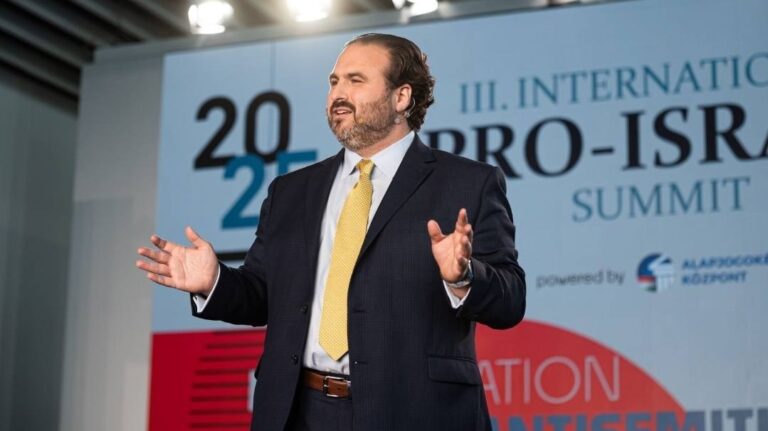Daniel F Runde is a senior vice president and director of the Project on Prosperity and Development (PPD) at the Center for Strategic and International Studies (CSIS). He held leadership roles at the USAID and the World Bank Group. Mr Runde is a member of the Council on Foreign Relations and the Bretton Woods Committee, and he previously chaired two US government advisory committees: the Advisory Committee on Voluntary Foreign Aid at USAID and the Sub-Saharan Africa Advisory Committee at the US EXIM Bank. He graduated from Dartmouth College and holds a master’s in public policy from Harvard University.
***
What is the American interest in IMEC?
Well, President Biden was an original supporter of IMEC, and President Trump has followed through, so there’s a bipartisan interest in seeing regional connectivity. IMEC couldn’t happen if you didn’t have several things. You needed the fall of the Berlin Wall to reconnect Europe, you needed the Abraham Accords which President Trump brought about in his first term, and with its criticisms, the European Union project has been a very important part as well. If I look at Hungary, much of the connectivity and prosperity has been brought about by the European Union. And I also would say the rise of India and the rise of powers in the Middle East, whether the strength of Israel, the strength of the UAE, or changes in Saudi Arabia, all of these things contributed to this.
So, the American interest lies in seeing an alternative to China. I understand the geopolitical and geoeconomic arguments, but we need a strong commercial case to sustain US interest in IMEC. And we haven’t yet put that together. We also need to create a timetable, and a catalog of what actually needs to be done. There’s a role for middle powers like Hungary, India, Israel, Italy, and the UAE to move this along. The American interest is to see an alternative to Belt and Road, to set opportunities for commerce, for American jobs and American workers, as well as seeing greater peace and prosperity among folks that used to have tensions, including Israel and the Middle East.
‘Clearly, there’s a geopolitical angle, but we need to do a good job of making business opportunities’
If we look at the project geographically, it’s a corridor from India through the Middle East to Europe, but America is one ocean away from it. So where is the US in this project physically and by trade?
When I think about it, connectivity will involve rail, energy—including gas—roads, digital infrastructure, and more. All of these components offer significant business opportunities for the United States to sell its products and services. Clearly, there’s a geopolitical angle, but we need to do a good job of making business opportunities. I think Hungary is well positioned to help convene this since it has relations all over the world, has good relations with the United States as part of the EU and the NATO. The ultimate interest is not just a geopolitical, but a commercial interest.
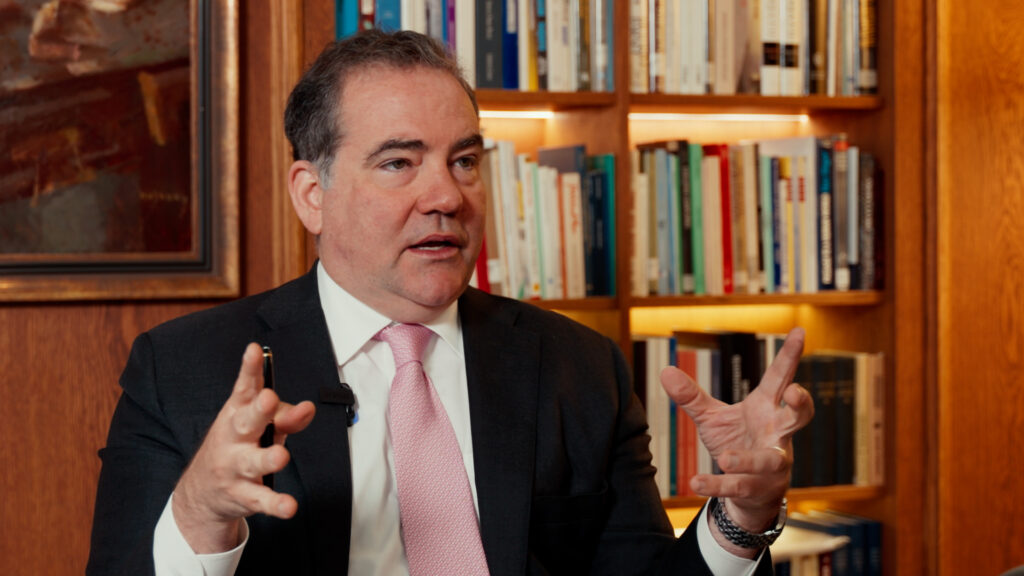
You have mentioned Hungary and the connectivity which is the official foreign strategy of the Hungarian government. Does Hungary hold a good position in this changing global world order?
I think Hungary should be thinking seriously about connectivity—whether that’s through the Middle Corridor, also known as the Trans–Caspian Corridor, which links Central Asia across the Caspian Sea to Azerbaijan and then through the Black Sea. That’s why it’s in Hungary’s interest to see a peace agreement between Ukraine and Russia.
There’s also the North–South connectivity—I believe it’s called the Three Seas Initiative—and to the extent that Hungary can be involved, that’s important. I also see strategic potential in Trieste, which, although it’s in Italy, was once part of the Austro–Hungarian Empire and is geographically close to Hungary.
So overall, I think this is a smart policy direction for Hungary. It also aligns with a broader foreign policy vision of engaging more with Asia, Africa, and Latin America. Hungary may be a small country, but it’s a significant one—and having a clear connectivity strategy is a wise move.
From the perspective of the US government, the China–Hungary relationship could be a sensitive point. The IMEC project is somewhat an alternative to the Silk Road initiative by the Chinese. Is it strictly a rival trade route, or can these two projects exist parallell to each other?
I think the United States and China are going to have a tense and very scratchy relationship. We’re going to look at the world through a lens of great power competition. Unfortunately, we might describe this as almost the second Cold War. President Trump just recently announced of a potential breakthrough on trade with China, and that’s great. No one wants to get into a war with China. We hope and pray that they don’t invade, they don’t physically cut off Taiwan. And so I think one role Hungary can play is to send a message to China: ‘Please, don’t invade Taiwan,’ given that you have connectivity.
‘Hungary may be a small country, but it’s a significant one—and having a clear connectivity strategy is a wise move’
We don’t want a world where everybody’s number one trading partner is China. We don’t want a world where the standards and rules are set by China, and where China has overall hegemonic influence. I think countries that care about religious liberty or economic freedom, and don’t like communism—this all describes Hungary and the United States—should not want a world controlled by a communist party that oppresses religion, has too much control over freedom of expression and freedom of religion and freedom of association. So having said all that, one of the problems is that the Belt and Road Initiavtive is a fabulous idea. It’s a big, positive, forward-looking agenda that speaks to the hopes and aspirations of billions of people. More than 100 countries had joined the BRI because it’s a fabulous idea. I wish the United States has thought of it.
But IMEC could be a new idea.
Maybe. We have to put some meat on the bones, we have to do the work.
One expert wrote this about the IMEC and the American interest: ‘It’s a strategic opportunity for the US to maintain influence and reassure traditional partners amidst China’s growing influence in the region.’ Is it a true notion?
I was hoping you were going to say that it was me who said that.
It could have been you. You wrote a book on this.
Yeah. It’s called The American Imperative: Reclaiming Global Leadership through Soft Power, and we’ve done a lot of work at CSIS on physical infrastructure and development finance. So I would just say that quote is true, but I think for us to sustain interest, we’re going to need help. The help of Hungary, Israel, the UAE, Italy, Saudi Arabia. We need to make the commercial case. What’s the size of the infrastructure? What are the physical projects needed? What are the business association opportunities with that? What are the commercial benefits of IMEC? Are we going to cut the amount of cost of trade down?
‘We don’t want a world where the standards and rules are set by China’
We need to make the business and commercial case. I want the United States to remain the leading power for the next 100 years. I don’t want China leading the world. And I would argue that Hungary ultimately will not want China to lead the world.
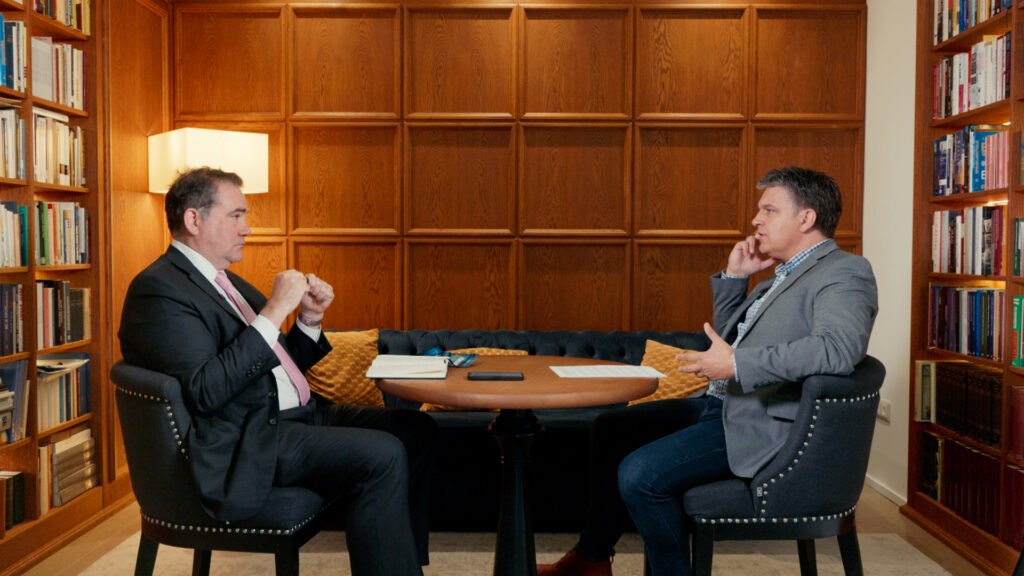
But China offers a cheap and fast service for many developing countries. Again, the title of your book is: The American Imperative: Reclaiming Global Leadership through Soft Power. What can the US offer them to reclaim global leadership?
This is the absolute right question. We have to enable a more compelling offer. We, the United States cannot do this alone. We need friends. We need partners. So, I think IMEC needs to be a collective work, a collective exercise. You’re right, the Chinese are oftentimes faster, cheaper and meet minimum quality standards. And we can’t fight something with nothing. So what’s our something? IMEC could be part of our something, but we’re gonna have to do a lot of work, because it’s a great idea.
‘There’s been a sustained American interest in finding ways for India to participate in helping solve big global problems’
We need to talk about India—the next rising star that avoids taking sides in the conflict between the West and the East, and aims to maintain good relations with the US, Russia, and China. With the IMEC project, is the U.S. trying to draw India closer to its Western allies? Is that the geopolitical motivation behind America’s support for this initiative?
I think there’s been an increasing and sustained American interest in deepening ties with India, and in finding ways for India to participate in helping solve big global problems, whether it’s through the Quad or through other arrangements. So IMEC is a logical follow on to this sustained effort over almost 20 years now. Since the Bush administration, there’s been significant efforts. President Obama, President Trump and President Biden did the same thing. I think India can and should play an important role.
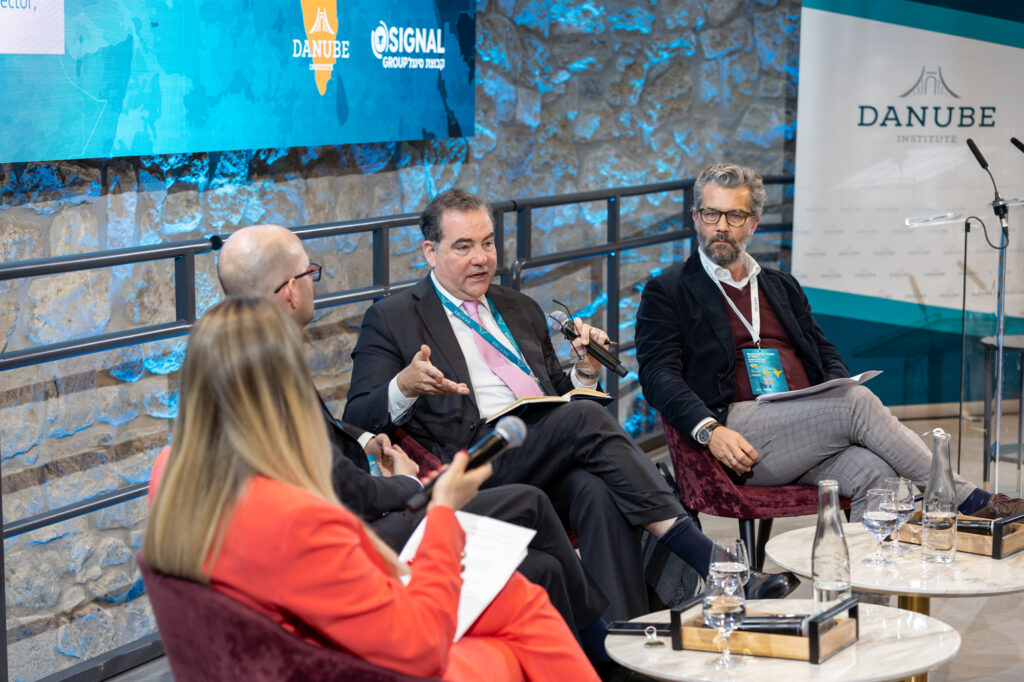
My last question is about the last two players in IMEC, actually three: Saudi Arabia, the United Arab Emirates and Israel. These are the states that the previous Trump administration wanted to create a new alliance in the Middle East with, a Sunni Islam, American, and Israeli coalition countering Iranian influence. Is there a bigger picture behind this?
One of the great legacies of the first Trump administration was the enabling of the Abraham Accords. If it wasn’t for President Trump’s diplomatic efforts, there wouldn’t have been the Abraham Accords in the end. So there are peace agreements now with a number of countries in the Middle East. The big prize would be an Abraham Accords between Israel and Saudi Arabia. It would help quite a lot for IMEC, it would make a closer regional connectivity in the Middle East possible. There’s also been some other changes, whether it’s in Syria or the changes in the last decade in Saudi Arabia. So the Abraham Accords are important, and the strength and dynamism of the Israeli economy, the innovation and technology that Israel has is really one of the world’s marvels. The Middle East is changing, and my hope is that we will see a peace agreement between Israel and Saudi Arabia. Regional connectivity and thriving commerce would be a major benefit of it. I think we should make the economic case for peace, not just the geopolitical one.
Watch the full podcast below:
What is the American interest in the IMEC project? | Danube Lectures
Listen on Spotify: COMING SOON… 0:00 – Introduction 1:10 – What is America’s interest in IMEC? 4:44 – Where is the US positioned physically and by trade in this project? 6:28 – Is connectivity, the official Hungarian foreign policy strategy, a viable one?
Read more of our interviews:

